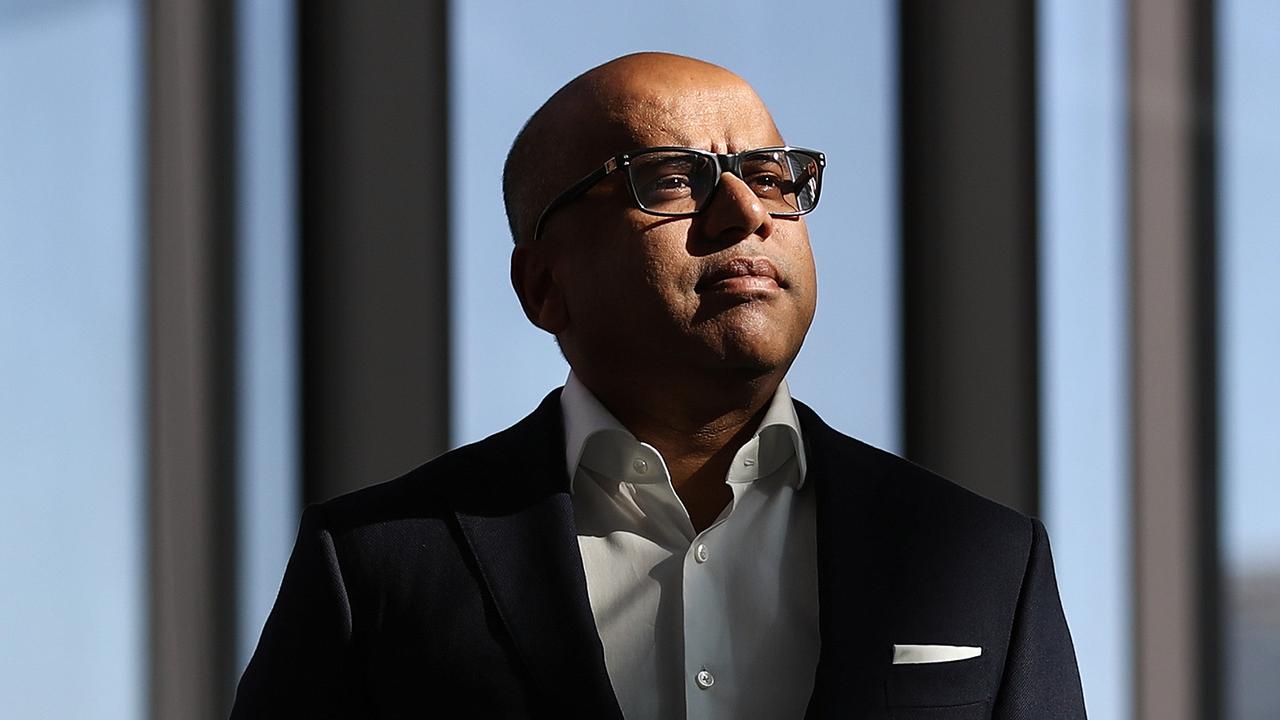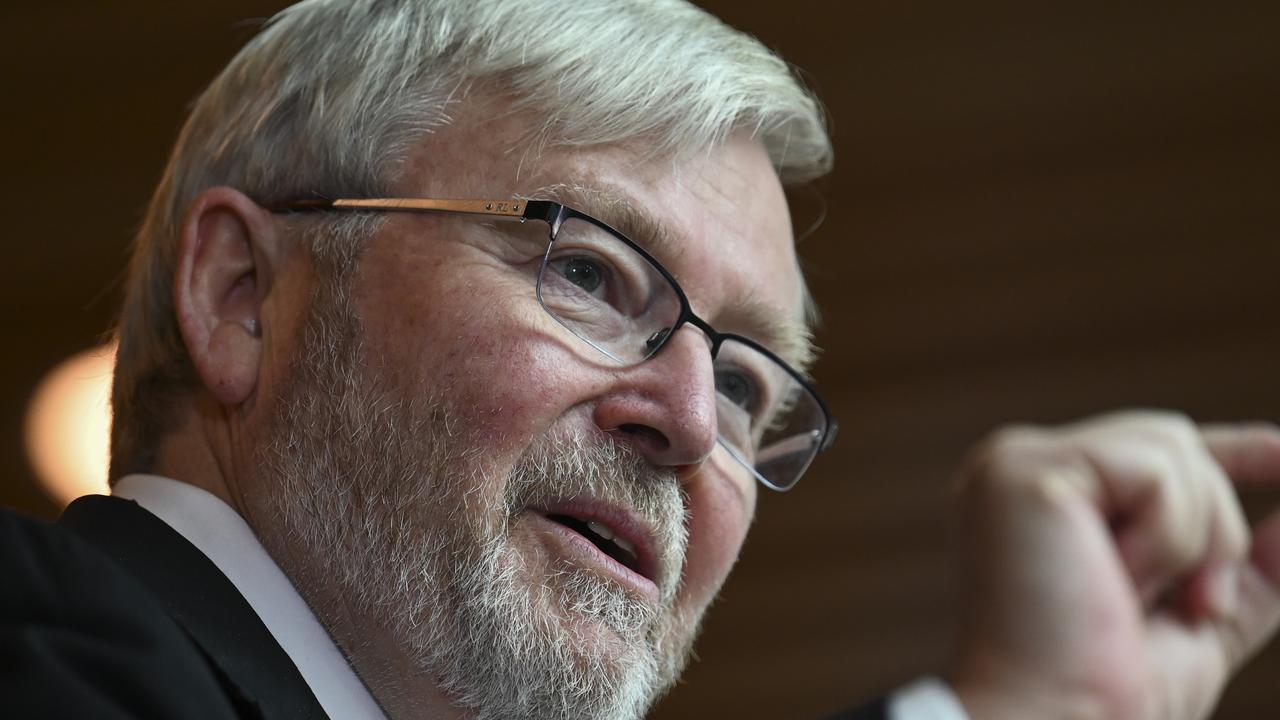Black Cat Civil; BHP’s Nyah Teiotu claim top QRC indigenous awards
Queensland Resources Council’s annual indigenous awards have recognised the state’s most exceptional contributors to the resources industry. Women won all three major individual awards.
QLD Business
Don't miss out on the headlines from QLD Business. Followed categories will be added to My News.
The first ever indigenous female engineer employed by mining giant BHP spends her days drilling holes, packing them with explosives and watching the fireworks fly.
Nyah Teiotu’s journey to get there involved juggling her studies with pregnancy and then raising her newborn daughter between engineering lectures and exams, all before the age of 28.
New Indigenous Australians Minister Ken Wyatt has plan for Elder statesmen
AMA calls for strategy to be rebuilt as indigenous life expectancy gap widens
The now 30-year-old drill and blast engineer at BHP’s Blackwater coal mine, an hour east of Emerald, says she has the coolest job in mining but in truth it’s probably her second passion.
Mentoring indigenous students following in her footsteps to STEM (science, technology, engineering and mathematics) courses at university is the other.
This week, the Wemba Wemba woman was recognised as most exceptional person at the 2019 Queensland Resources Council’s Indigenous Awards. Women took out three major individual awards.
The QRC award was bestowed upon Mrs Teiotu for her role in mentoring and inspiring future generations of indigenous students coming through the Australian Indigenous Educational Foundation (AIEF) scholarship program.
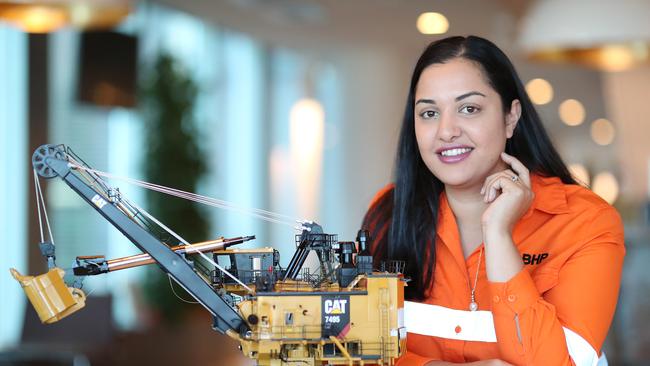
Mrs Teiotu was supported by the program while studying Civil and Mining Engineering at the University of Queensland between 2007 and 2016, juggling study through her final semester with raising her daughter, Temehani.
Mrs Teiotu said the invaluable support of the AIEF during her time at university had proven how important the scholarship program was.
“For the past two years I’ve organised the AIEF and BHP university student’s scholarship workshop,” she said.
“Last year it was held at our Daunia mine site, where students on scholarship came to meet the whole team – engineers, miners, geologists and the planning team – to give them an idea of what they could be doing with their skills once they finish studying.
“That’s what I’m passionate about, driving those initiatives, focusing on students themselves and letting them know a good attitude and work ethic can let them do anything they want in this industry.”
Mrs Teiotu said receiving the award was an unexpected honour.
“It was good to get that recognition, because in my category alone I was up against nominees with more experience but the chance to meet them and hear their stories was pretty special,” she said.
Mrs Teiotu said now is the most exciting time ever for young women with a passion for STEM.
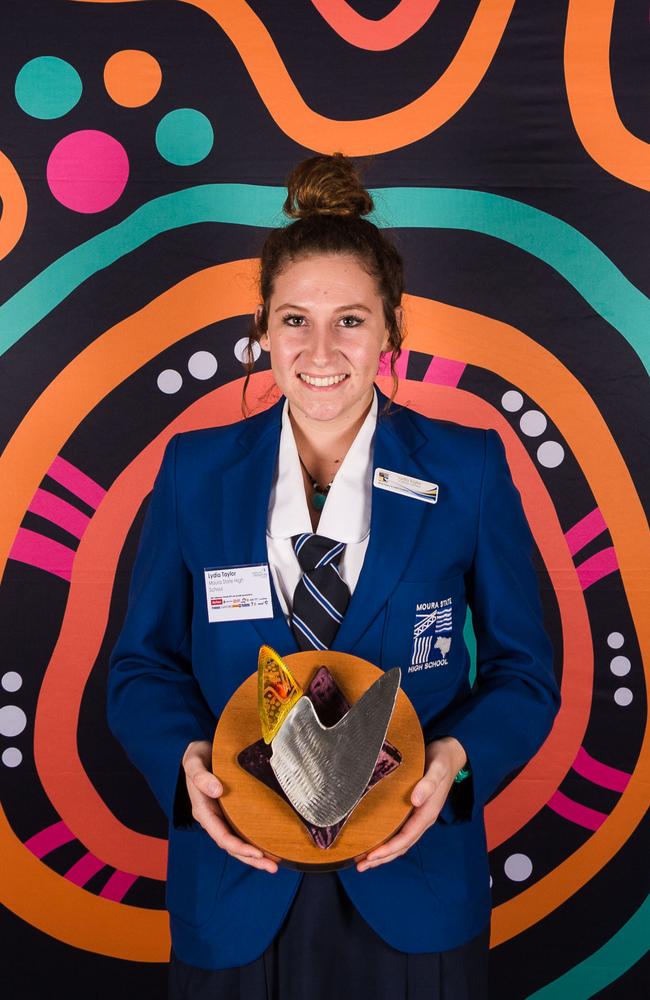
Queensland Minerals and Energy Academy student award recipient Lydia Taylor, from Moura State High School, 188km southwest of Gladstone, is one such student planning entry into the resources sector. “It is an exciting time to be a young indigenous female,” Ms Taylor said. “In particular having won this award and being exposed to the range of opportunities in the resources sector, gives me the chance to be part of this new generation.”
Nambour’s Black Cat Civil was recognised by QRC as Queensland’s most exceptional indigenous business.
The civil contractors turn over $50 million a year on detailed earthworks projects across the Northern Territory, Queensland and New South Wales.
Co-founder Jai Tomlinson, the son of a Kabi Kabi man from the Sunshine Coast but raised in Mununjali country near Beaudesert, says 30 per cent of his 160 employees are indigenous.
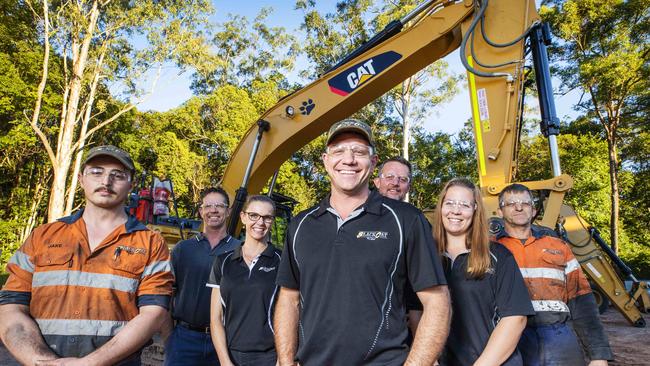
“It’s great to have been recognised and we’re super humbled but it’s not something we’ve gone out of our way to do,” he said. “Our 30 per cent indigenous employment rate is not an internal KPI.
“It’s something we’ve done naturally, because we’ve got a passion for upskilling and developing our people in different areas.”
Mr Tomlinson says Black Cat Civil took pride in providing vertical integration opportunities within the business, including teaching employees the skills to operate heavy machinery or work in the company’s logistics department.
“When we work in these communities we want to actively engage with them and add value to their communities, even if we’re only there for a short time,” he said.
“We will continue to create opportunities in remote areas for indigenous people.”
Queensland Resources Council CEO Ian MacFarlane said the the resources sector was the only non-public service industry in Queensland where the 4 per cent indigenous employment rate was proportionate to Queensland indigenous population.
The ratio of indigenous females to males employed in the sector was 26 per cent female, which is close to double the rate of non-indigenous women, Mr MacFarlane said.
“The communities are grabbing these opportunities with both hands and every year the nominations are more and of a higher calibre,” he said.

